Managing those AI identities will require companies to completely reassess their cybersecurity strategies.
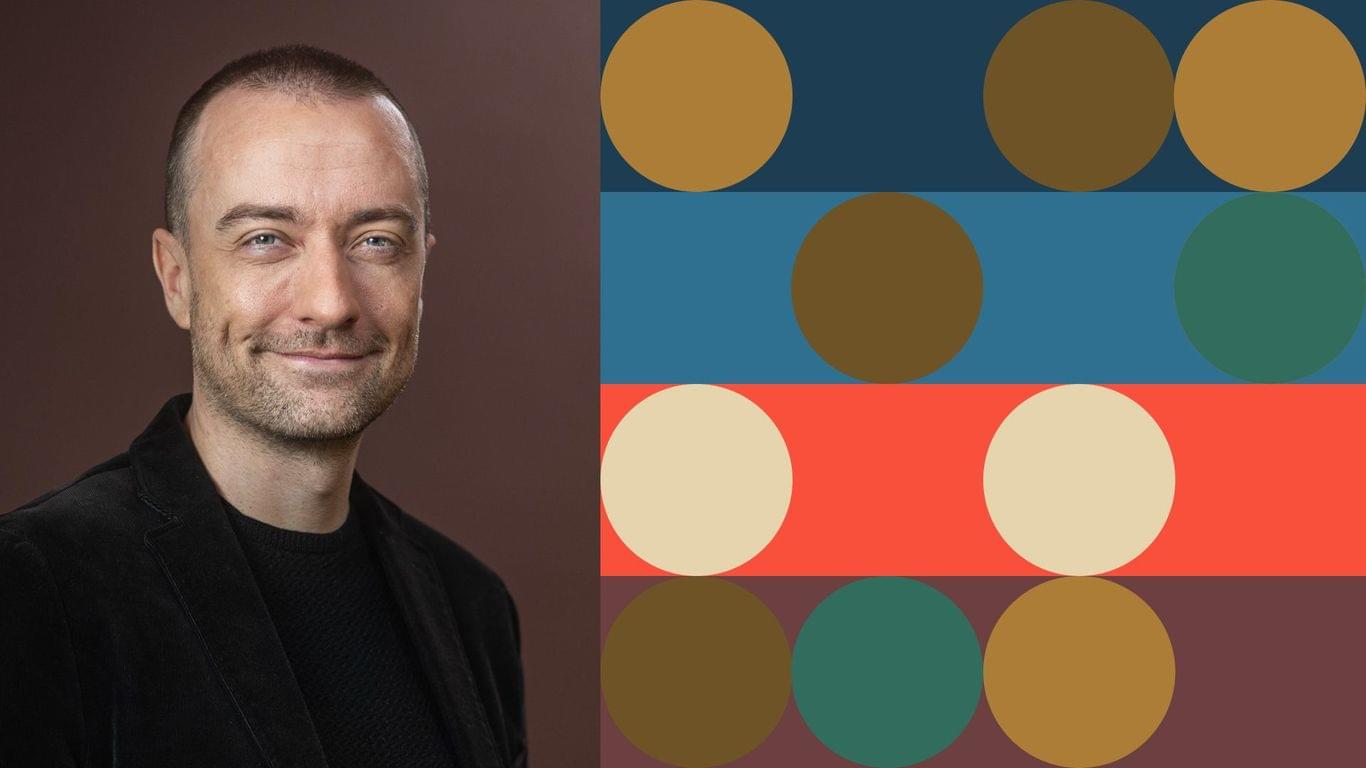


We have investigated the rich dynamics of complex wave packets composed of multiple high-lying Rydberg states in He. A quantitative agreement is found between theory and time-resolved photoelectron spectroscopy experiments. We show that the intricate time dependence of such wave packets can be used for investigating quantum defects and performing artifact-free timekeeping. The latter relies on the unique fingerprint that is created by the time-dependent photoionization of these complex wave packets. These fingerprints determine how much time has passed since the wave packet was formed and provide an assurance that the measured time is correct. Unlike any other clock, this quantum watch does not utilize a counter and is fully quantum mechanical in its nature.
Out in the cosmos, beyond the comfort of our tiny blue planet, exist forces so extreme they defy comprehensi…
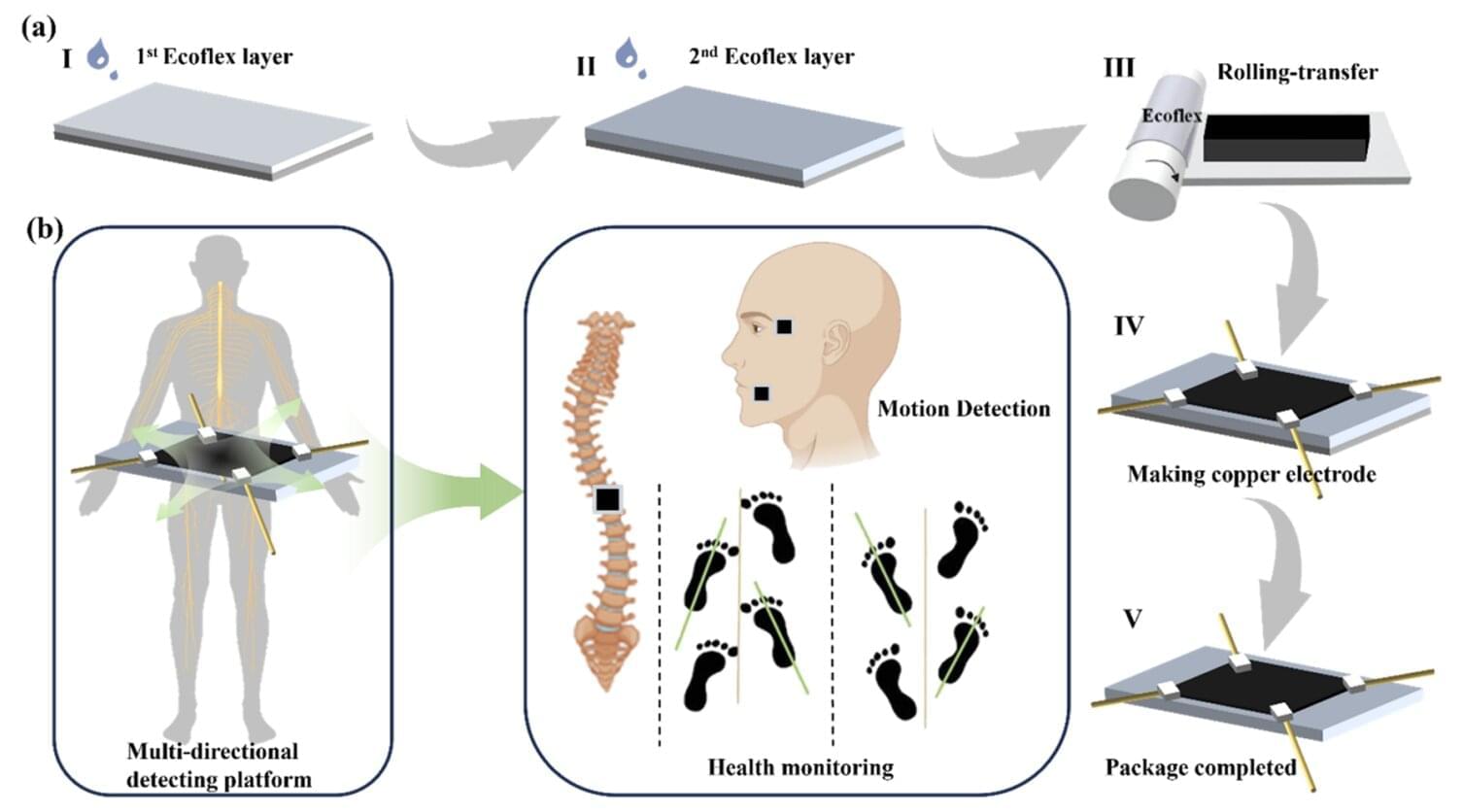
Over the past decades, electronics engineers developed increasingly small, flexible and sophisticated sensors that can pick up a wide range of signals, ranging from human motions to heartrate and other biological signals. These sensors have in turn enabled the development of new electronics, including smartwatches, biomedical devices that can help monitor the health of users over time and other wearable or implantable systems.
Strain sensors, which are designed to convert mechanical force into electrical signals, are among the most widely used sensing devices within the electronics industry, as they can be valuable for tracking both human movements and health-related biological signals. While these sensors are already embedded in many electronic devices, most existing solutions are only able to track movements in one direction.
Sensors that can accurately pick up movements and forces in multiple directions could be highly advantageous, as they could be applied to a wider range of scenarios. In addition, these sensors could be embedded in existing electronic devices to broaden their functions or enhance their capabilities.
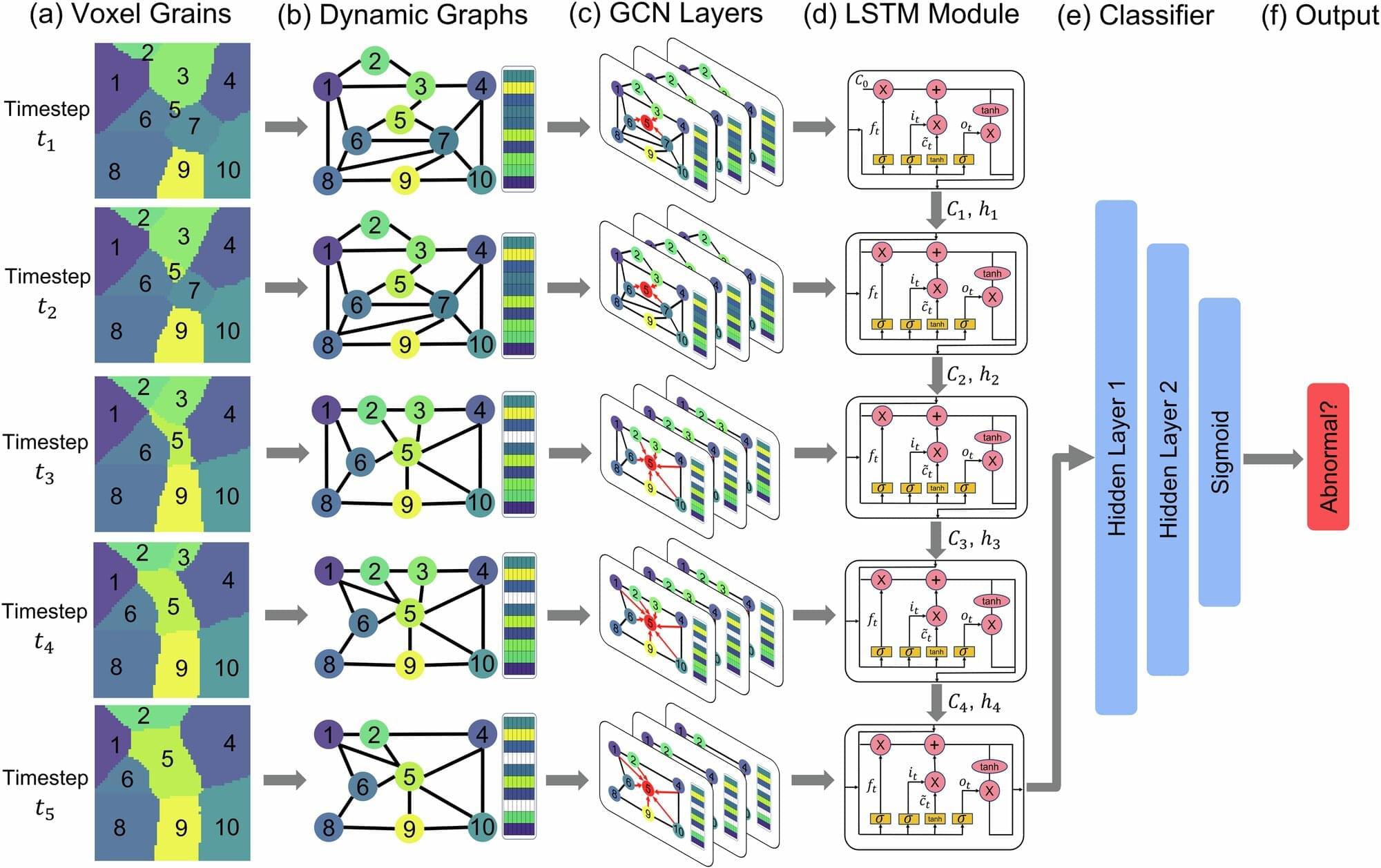
A team of Lehigh University researchers has successfully predicted abnormal grain growth in simulated polycrystalline materials for the first time—a development that could lead to the creation of stronger, more reliable materials for high-stress environments, such as combustion engines. A paper describing their novel machine learning method was recently published in Nature Computational Materials.
“Using simulations, we were not only able to predict abnormal grain growth, but we were able to predict it far in advance of when that growth happens,” says Brian Y. Chen, an associate professor of computer science and engineering in Lehigh’s P.C. Rossin College of Engineering and Applied Science and a co-author of the study. “In 86% of the cases we observed, we were able to predict within the first 20% of the lifetime of that material whether a particular grain will become abnormal or not.”
When metals and ceramics are exposed to continuous heat—like the temperatures generated by rocket or airplane engines, for example—they can fail. Such materials are made of crystals, or grains, and when they’re heated, atoms can move, causing the crystals to grow or shrink. When a few grains grow abnormally large relative to their neighbors, the resulting change can alter the material’s properties. A material that previously had some flexibility, for instance, may become brittle.
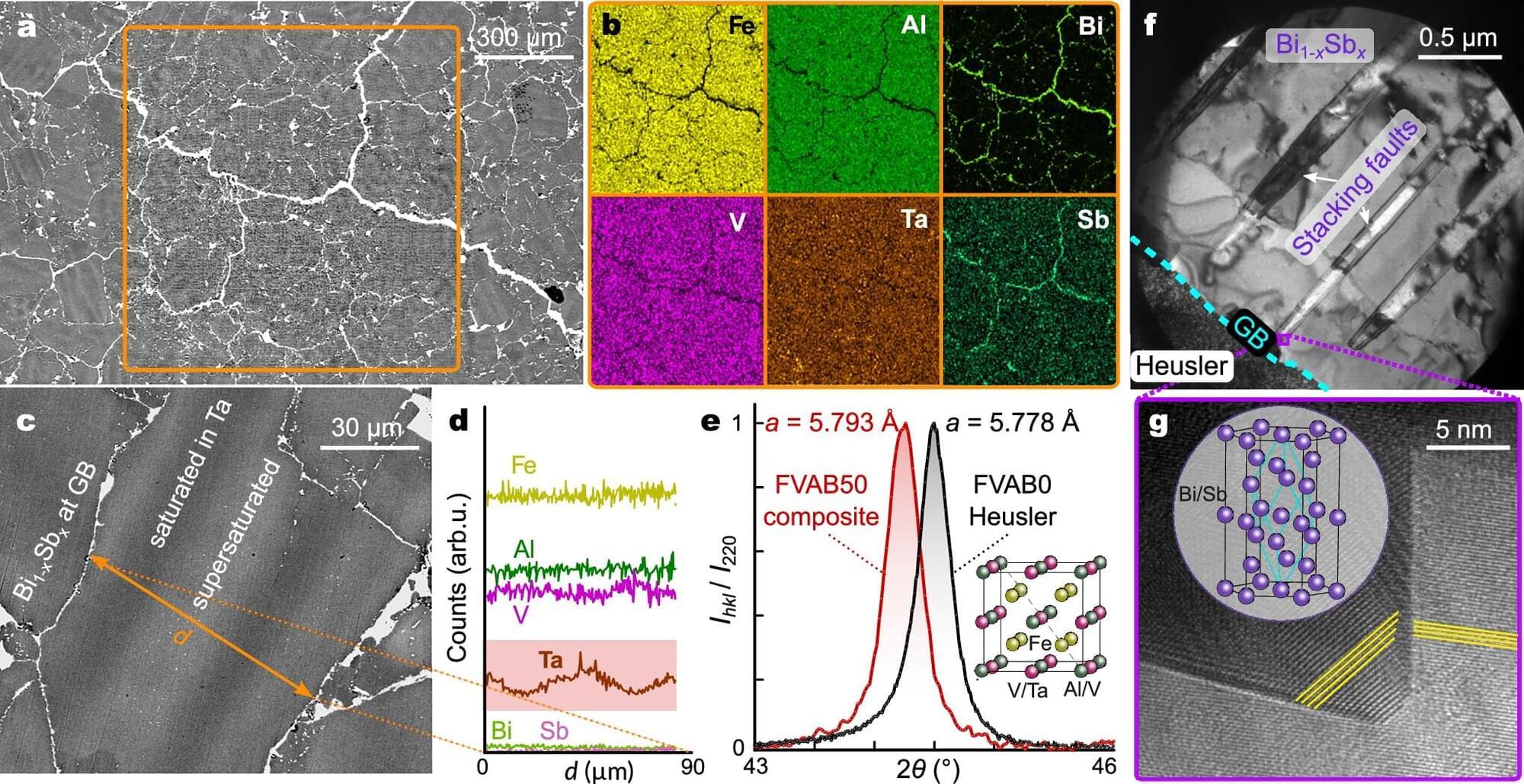
Thermoelectric materials enable the direct conversion of heat into electrical energy. This makes them particularly attractive for the emerging Internet of Things. For example, for the autonomous energy supply of microsensors and other tiny electronic components.
In order to make the materials more efficient, at the same time, heat transport via the lattice vibrations must be suppressed and the mobility of the electrons increased—a hurdle that has often hindered research until now.
An international team led by Fabian Garmroudi has now succeeded in using a new method to develop hybrid materials that achieve both goals—reduced coherence of the lattice vibrations and increased mobility of the charge carriers. The key: a mixture of two materials with fundamentally different mechanical but similar electronic properties.
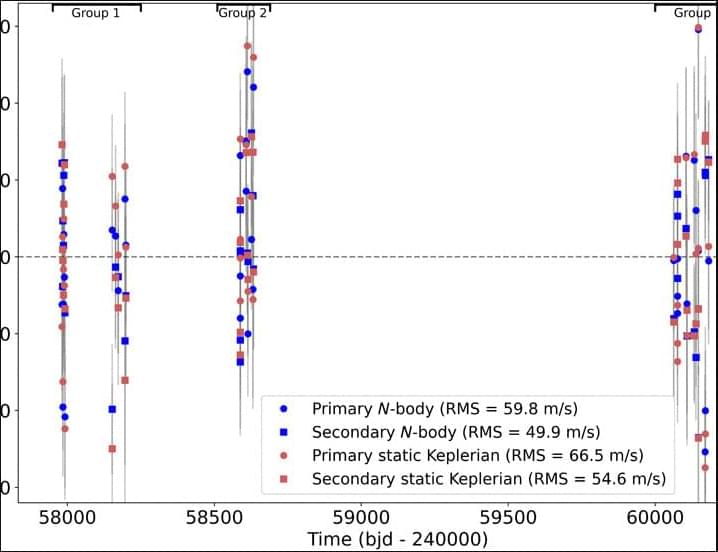
A new kind of microscope called ELVIS is heading to the International Space Station to change how we study life in space. By creating stunning 3D holograms of cells, it allows scientists to observe how organisms adapt to microgravity and other extreme conditions. This could help us understand whe
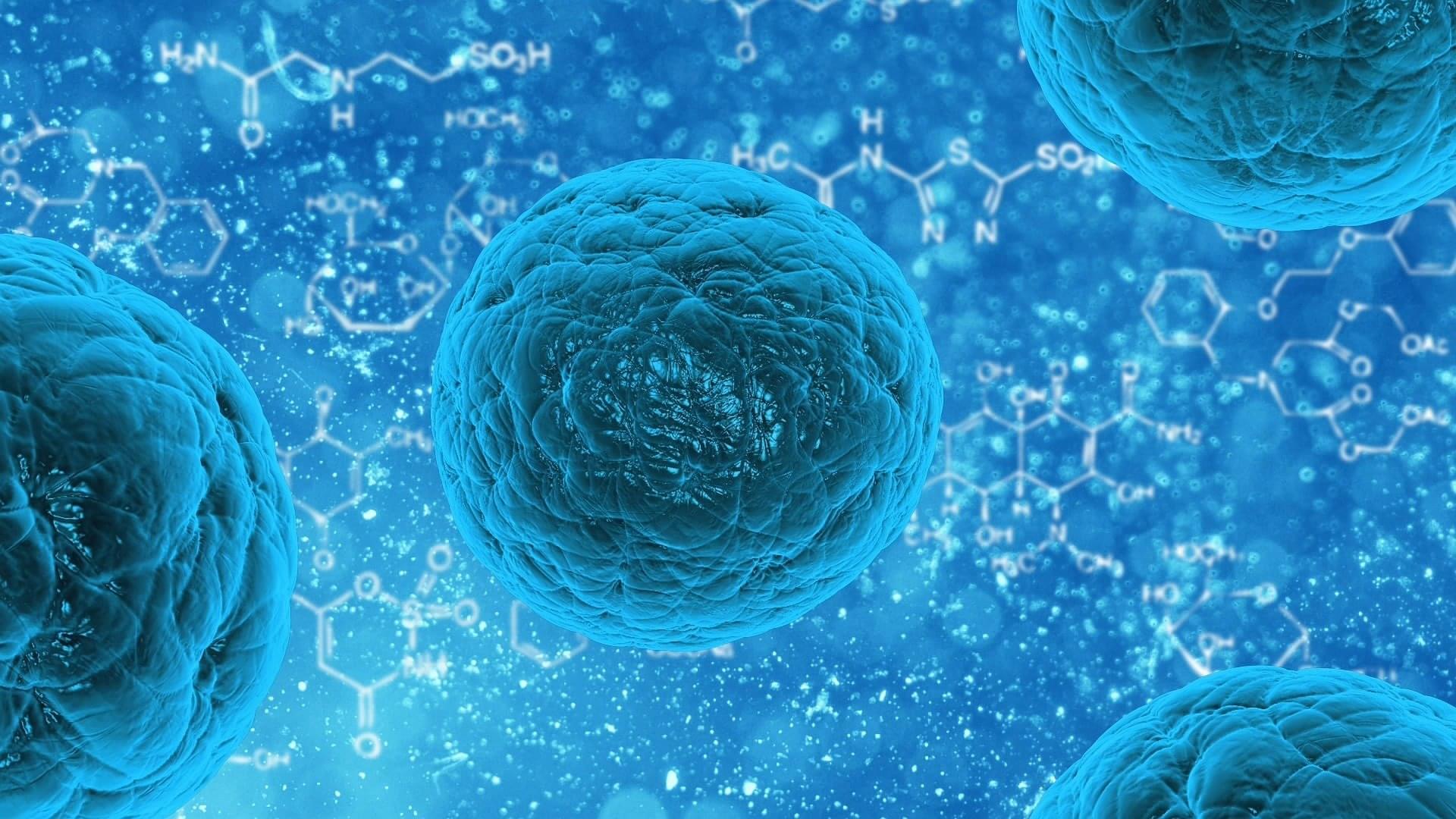
In 2021, research led by Ryan Flynn, MD, Ph.D., and his mentor, Nobel laureate Carolyn Bertozzi, Ph.D., opened a new chapter in biology, characterizing a new kind of player on the cell surface: glycoRNAs. Extending this discovery recently in Cell, Flynn and colleagues showed that glycoRNAs form highly organized clusters with RNA-binding proteins on the cell surface. These clusters appear to regulate communication between cells and their environment.
Now, reporting in Nature Biotechnology, Flynn’s team in the Stem Cell Program at Boston Children’s Hospital and Dana-Farber/Boston Children’s Cancer and Blood Disorders Center demonstrate a first application of this newfound biology: fighting cancer.
With collaborators at the Cambridge (UK) Stem Cell Institute, led by Konstantinos Tzelepis, Ph.D., and Maria Eleftheriou, Ph.D., they show that one RNA-binding protein on the cell surface, NPM1, could be a potent, selective target for treating acute myeloid leukemia (AML), as well as solid tumors.
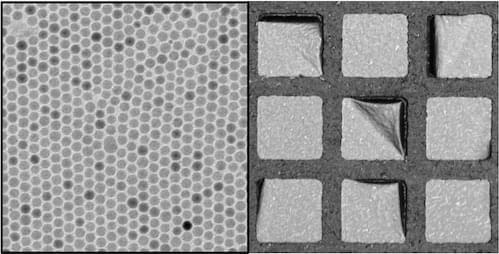
Suppose you want to make a tiny robot to perform surgery inside a human patient. To avoid damaging healthy tissue and to squeeze into tight spots, the robot should be squishy. And manipulating the robot’s movements with magnetic fields would make sense, as tissues don’t respond to magnetism. But what material would you use for the robot’s limbs? Magnetic materials are stiff and brittle. Embedding tiny particles of them in a rubbery matrix could work, but the thinner—and therefore bendier—you make the composite material, the less it responds to a magnetic field. Heinrich Jaeger of the University of Chicago, Monica Olvera de la Cruz of Northwestern University, Illinois, and their collaborators have now overcome that obstacle by making thin, flexible sheets out of self-assembled nanoparticles of magnetite [1]. Even a modest field of 100 milliteslas can lift a sheet and bend it by 50°, they found.
At room temperature, magnetite (Fe3O4) is ferrimagnetic—that is, the magnetic moments in its two sublattices align in opposite directions but with unequal magnitudes, yielding a net magnetization. The smaller a ferrimagnet, the greater the chance that it has a single domain, and therefore the lower the temperature at which the domain’s magnetization will flip. When the sample size gets down to a few tens of nanometers, a ferrimagnet made of randomly flipping particles becomes, in effect, a paramagnet—that is, it lacks a net magnetization and is attracted by an applied magnetic field. The attraction can be strong. The discoverers of this phenomenon in 1959 dubbed it superparamagnetism [2].
The researchers realized that a sheet made from a single layer of superparamagnetic particles could serve as a viable material for the magnetic actuation of small soft robots. To create the layers, they suspended magnetite nanoparticles in droplets of water coated with an organic solvent. The solvent attracted the nanoparticles, which migrated to a droplet’s surface. The water slowly evaporated, leaving behind a layer of closely packed nanoparticles draped on the droplet’s support structure, a square copper grid. Each of the 20 × 20 µm squares supported a single sheet. As shown in the figure, some of the sheets happened to have a single unattached corner.